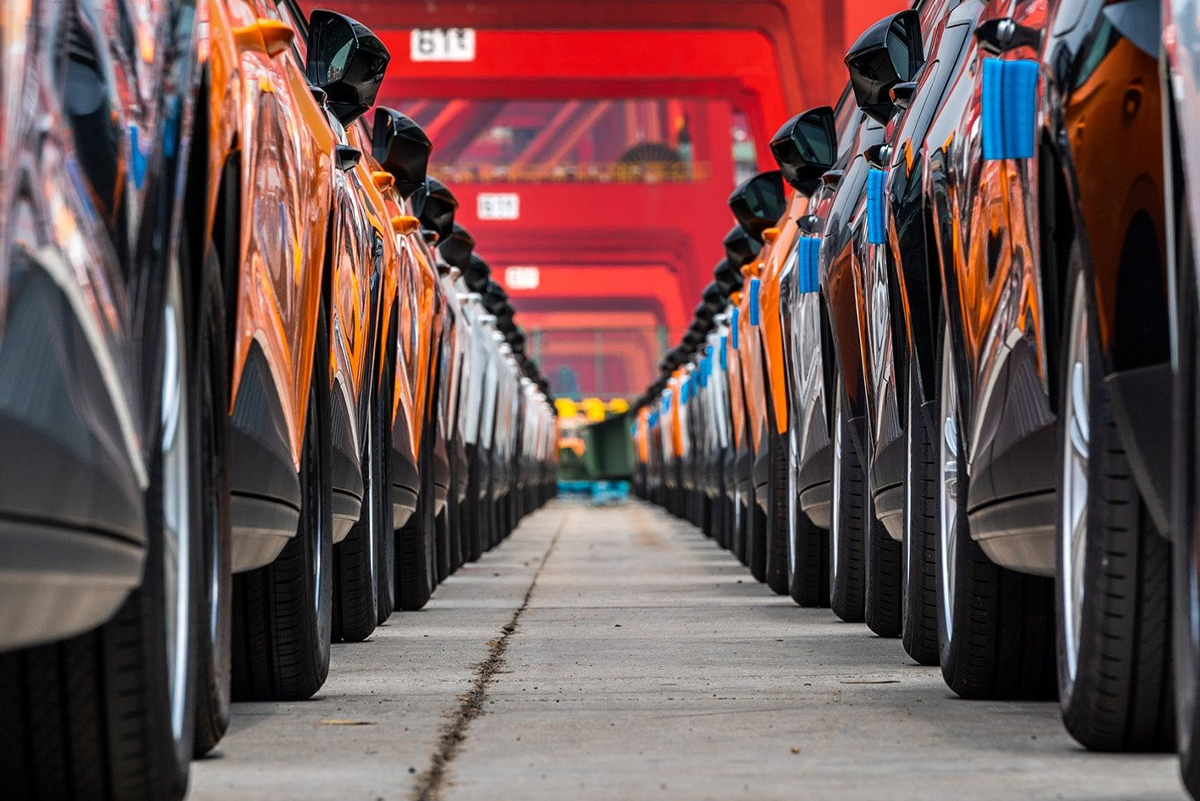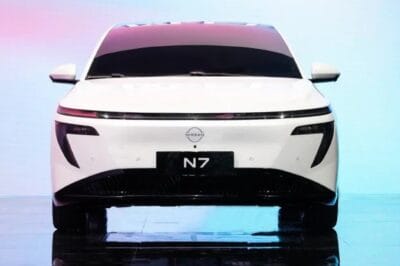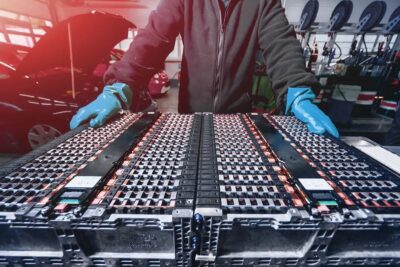USA increases tariffs on electric cars from China from 25 to 100 per cent
Not only electric vehicles from China are affected by the increase in import tariffs in the USA, but also other products “in strategic sectors”, such as batteries and semiconductors. The Biden administration is thus taking a further step in its strategy of building up and shielding production and supply chains in the USA. In contrast to the Inflation Reduction Act and other stimulus packages with their comprehensive subsidies to attract green technology companies, the tariff increase is aimed at increasing the cost of key products manufactured in China.
As a result, tariffs on electric vehicles in the USA will be quadrupled from 25 per cent to 100 per cent this year. The duty rate for lithium-ion batteries for use in electric vehicles or individual battery components will also be increased from 7.5 to 25 per cent this year. A new duty of 25 per cent will also be introduced in 2026 on natural graphite, permanent magnets and, from 2024, on certain other critical materials.
With regard to electric cars from China, the White House says that they benefit from “extensive subsidies” and “non-market-compliant practices”. Overcapacity brought about in this way would have led to China’s exports of electric vehicles increasing by 70 per cent between 2022 and 2023 – “jeopardising productive investment in other countries”. The 100 per cent tariff on electric vehicles is intended to “protect American manufacturers from China’s unfair trade practices”.
Market power jeopardises national security
The Biden administration’s argument for raising import tariffs on e-car batteries and their components is not dumping, but the dominant market power of the Chinese. The Chinese currently control “over 80 per cent of certain segments of the electric car battery supply chain, particularly upstream areas such as the mining, processing and refining of critical minerals”. In the government’s view, this makes its own supply chains vulnerable and jeopardises national security and clean energy goals.
The White House wants to see the tariff increase as part of an overall strategy that is flanked by investment incentives, large-scale economic programmes, tax credits and legal requirements in order to develop such a steering effect in the aforementioned sectors, among other things, that “a sufficient industrial base can be built up domestically”. The EU has already felt the negative effects of this “Investing in America” agenda. And the impasse over a possible raw materials partnership continues in order to restore the balance between the EU and the USA.
USA denounces “artificially cheap exports”
However, the current move towards China is in a different league. President Biden is thus accepting the flare-up of a new trade conflict – also due to the tone set in the official White House statement. For example in the following passage: “China’s unfair trade practices concerning technology transfer, intellectual property, and innovation are threatening American businesses and workers. China is also flooding global markets with artificially low-priced exports. In response to China’s unfair trade practices and to counteract the resulting harms, today, President Biden is directing his Trade Representative to increase tariffs under Section 301 of the Trade Act of 1974 on $18 billion of imports from China to protect American workers and businesses.”
Elsewhere, it states that China’s forced technology transfers and intellectual property theft have contributed to the country controlling 70, 80 and even 90 per cent of the global production of critical inputs for our technologies, infrastructure, energy and healthcare. In doing so, China has “created unacceptable risks to America’s supply chains and economic security”.
The EU is also threatening China with the introduction of punitive tariffs on electric cars, but is taking a less brutal approach. In October 2023, the EU officially launched an “anti-dumping investigation”, which is also based on the assumption that Chinese electric vehicle importers benefit from excessive state subsidies in their home country, which distorts competition in Europe. EU Commission President Ursula von der Leyen outlined the problem as follows in mid-September 2023: “Global markets are now flooded with cheaper electric cars. And their price is kept artificially low by huge state subsidies. So I can announce today that the Commission is launching an anti-subsidy investigation into electric vehicles coming from China. Europe is open to competition. Not for a race to the bottom.”
The EU Commission recently criticised the three Chinese electric car manufacturers BYD, SAIC and Geely for not providing enough information as part of the investigation. The EU is now also including electric cars already imported from China that are eligible for punitive tariffs. This is considered a preparatory measure for the potential introduction of the instrument. The anti-dumping investigation is due to be completed in November 2024, but punitive tariffs could apply retroactively from as early as July.
Tariffs only help above a certain level
If the EU adds punitive duties to the current 10 per cent tariff, these will apply to all imports of electric vehicles from China, although the EU may vary the percentages for individual manufacturers. Meanwhile, analysts at the Rhodium Group recently concluded that Chinese manufacturers of electric cars are so competitive that they would still make a profit even if the EU were to impose import duties of up to 30 per cent. According to their assessment, tariffs of up to 50 per cent would be necessary to “inflict serious pain” on manufacturers.
In China, the announcement of the anti-dumping investigation last year triggered an enormous response: “This countervailing duty investigation from Europe is based only on subjective assumptions about so-called subsidies and threats of damage. It lacks sufficient evidence to support it and is inconsistent with relevant WTO rules, and China is strongly dissatisfied with this,” said a spokesperson for the Chinese Ministry of Commerce at the time. The investigation measures planned by the EU serve to protect its own industry in the name of “fair trade” and are in reality pure protectionism. This will disrupt and distort the global automotive industry and supply chains, including in the EU, and have a negative impact on economic and trade relations between China and the EU.





1 Comment